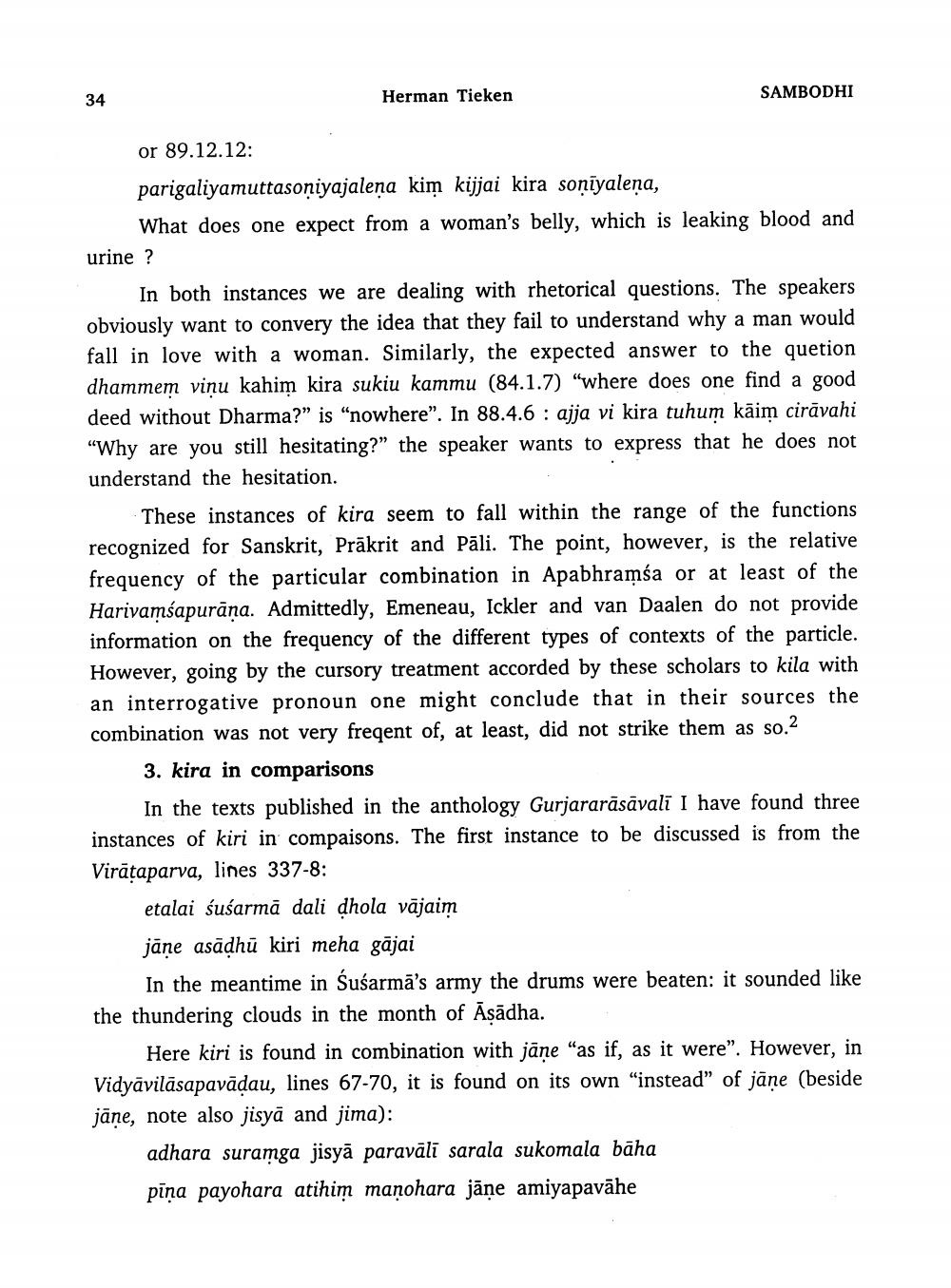________________
34
Herman Tieken
SAMBODHI
or 89.12.12: parigaliyamuttasoniyajalena kim kijjai kira sonīyalena,
What does one expect from a woman's belly, which is leaking blood and urine ?
In both instances we are dealing with rhetorical questions. The speakers obviously want to convery the idea that they fail to understand why a man would fall in love with a woman. Similarly, the expected answer to the quetion dhammem vinu kahim kira sukiu kammu (84.1.7) "where does one find a good deed without Dharma?” is “nowhere”. In 88.4.6 : ajja vi kira tuhum kāim cirāvahi “Why are you still hesitating?” the speaker wants to express that he does not understand the hesitation.
These instances of kira seem to fall within the range of the functions recognized for Sanskrit, Prākrit and Pāli. The point, however, is the relative frequency of the particular combination in Apabhramsa or at least of the Harivamśapurāņa. Admittedly, Emeneau, Ickler and van Daalen do not provide information on the frequency of the different types of contexts of the particle. However, going by the cursory treatment accorded by these scholars to kila with an interrogative pronoun one might conclude that in their sources the combination was not very freqent of, at least, did not strike them as so.2
3. kira in comparisons
In the texts published in the anthology Gurjararāsavali I have found three instances of kiri in compaisons. The first instance to be discussed is from the Virātaparva, lines 337-8:
etalai śuśarmā dali dhola vājaim jāņe asādhū kiri meha gājai
In the meantime in Sušarma's army the drums were beaten: it sounded like the thundering clouds in the month of Āsādha.
Here kiri is found in combination with jāne "as if, as it were”. However, in Vidyāvilāsapavādau, lines 67-70, it is found on its own "instead" of jāne (beside jāne, note also jisyā and jima):
adhara suramga jisyā paravāli sarala sukomala bāha pina payohara atihim manohara jāne amiyapavāhe




